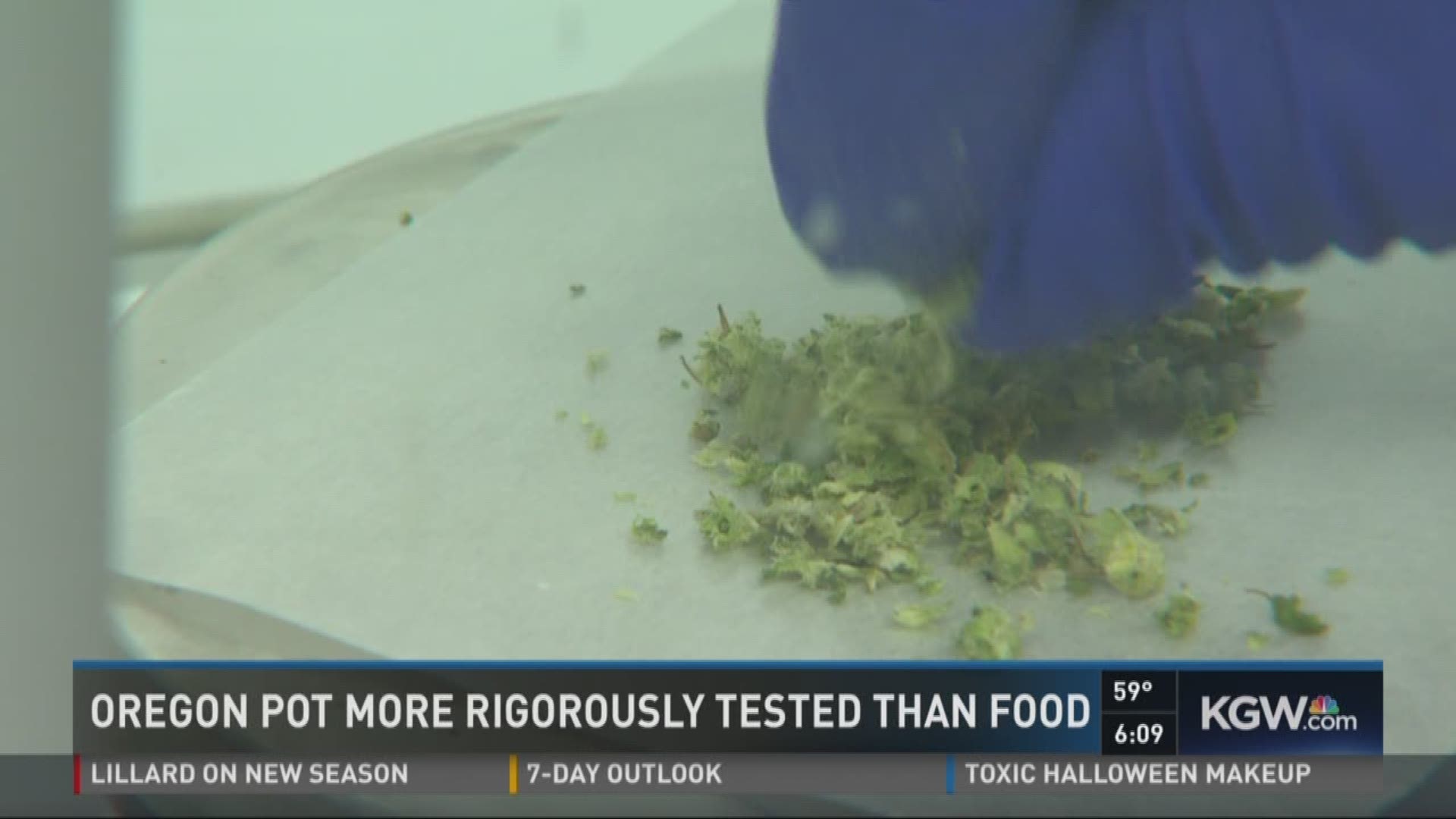PORTLAND, Ore. -- Science laboratories that test marijuana in Oregon say the state's recreational cannabis supply undergoes more testing, and is safer than any food product consumers buy.
A handful of labs just got their state accredited license this October.
Oregon has set the strictest standards in the industry.
"Residual solvents, potency, terpenes and pesticides over there," Molly Lyons points out all the machines she uses to test hundreds of marijuana samples every day.
Her workplace, GreenHaus Analytical Labs in Southeast Portland, is among the first accredited to do it. They test several dozen samples from each marijuana harvest, and the oil and concentrates that it can be made into, for pesticides, mold and potency.
Once samples pass and some are cooked into edibles, they test the final food product as well -- making sure each one doesn't exceed the 15 milligram THC limit set by the state. If a sample fails two tests, it can't be sold, and that money to grow it, is all lost.

"If you can't sell your product, that's a big motivator to find a new product that is safe and possibly organic so you can pass your test and have your product on the shelf," Lyons said. "I could only wish our food was tested to the highest standards as cannabis."
She says the state's strict standards gives piece of mind for consumers, knowing what they're buying is safe and pure.
"There's a lot of people who have never consumed cannabis and now that it's legal, they want to try it for different reasons, and they need to know what they're consuming," Lyons said.
The most failed test is for pesticides. Lyons said probably 25-30 percent of the samples fail for pesticides.
"When we first started testing for the full panel of pesticides, customers were upset about those fails. I think it helped push them in right direction before stricter laws came to be."
Lyons says Oregon's wet weather also makes for higher probability of mold in outdoor marijuana grows. Just like if you were growing tomatoes, you'd spray something on the plant to prevent or cure it, but now more growers are going organic, so they pass the tests without worry and don't lose money.

